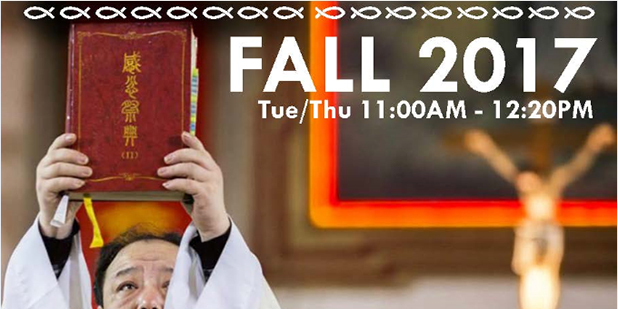Did you know Christianity is growing rapidly in Asia?
Are you aware there are already more Christians in Asia than there are in Europe?
Did you know that Christianity has impacted the politics of modern Asia, including in nations like China, where it is mostly illegal and practiced in secret underground churches?
This course explores the Christianities, past and present, of Asia, including the Middle East, South, Southeast, and East Asia. We will first consider the Middle Eastern origins of Christianity before examining the turbulent histories and uncertain futures of Middle Eastern Christians, including those groups today persecuted by ISIL and controversially protected by Trump’s first travel ban. We will then explore Christianity in the contexts of South, Southeast, and East Asia, paying particular attention to India, China, Taiwan, Korea, and Japan. In doing so, we will examine the ways that Christianity first entered into these regions (by imperial force or via western missionaries) and also the processes of indigenization through which Christianity absorbed Hindu, Buddhist, Confucian, Daoist, and other local ideas and practices to transform into entirely new, distinctly local (even perhaps unrecognizable) religious movements. We will witness Asian Christianities inspire violent rebellions, threaten modern political regimes, change personal identities, and redefine relations between Asia and the West. As we will grow to see, Asian varieties of Christianity have become so large and widespread that any attempt to understand Asia today and tomorrow will require knowledge of these rapidly growing, yet still frequently persecuted, Asian Christian traditions The course will be of interest to anyone studying Asia or the relations (business, political, cultural, or otherwise) between Asia and Europe and the USA.
The course is open to all USC students, regardless of major or disciplinary background. No prior study of Asia or Christianity is required.
For more information contact Dr. Christopher Daily, cdaily@usc.edu

